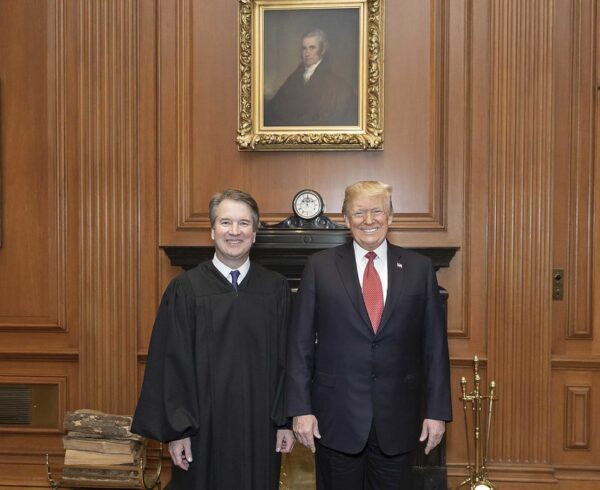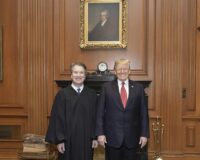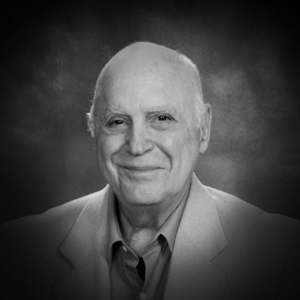Our current political situation, especially the presidential campaign, suggests to me that our country is in the midst of a periodic disarray or disorder. This disarray stems from the lack of unifying goals the great majority of our citizens can support. Our involvement in the Second World War, elimination of polio, and landing a US astronaut on the moon represent some of the last times our country exhibited truly unifying objectives. Disagreement on the strategy and tactics involved in securing these objectives does not detract from what the country pursued and attained.
2016 National Elections
A campaign to elect a president may be a unifying goal for a specific political party without uniting the country as a whole. Demographic considerations impacting the Electoral College (Article II, Section 1 of the United States Constitution) most likely will inhibit a common unification, no matter how big a victory may occur in the archaic method for choosing our President of the United States (POTUS) and Vice-President (Vice-POTUS). The Electoral College, a term that does not appear in the Constitution, may have once served the country well but has the potential to distort our elections: Political victory through the Electoral College can occur by candidates prevailing in a relatively few states with high populations—and a concomitantly high number of electors—without securing a majority of the popular vote.
I have doubts that any different electoral process will necessarily establish unification: Even if we were to change our POTUS and Vice-POTUS elections to be based on the popular vote, candidates would still campaign most often and vigorously in states with high populations. Furthermore, parties who lose elections will not always unite behind the victors absent a unifying goal. At this point in our political life, the unifying goal for each party seems to be thwarting the other party from passing any meaningful legislation.
Partisan Politics
A cogent argument can be made that rational partisan politics, pre- and post-elections, are necessary to prevent any one party from absolute rule. I believe the Founders did not advocate political parties although they soon formed despite the reservations: The Federalist Party coalesced around Alexander Hamilton; Thomas Jefferson and James Madison led the formation of the rival Republican Party, also known as the Democratic-Republican Party. The historical record clearly documents the vicious partisan and personal attacks that characterized some of our earliest national elections. Such attacks impede persons from working together in pursuit of unifying national goals. After all, compromises between persons with opposing political viewpoints often leads to implementation of effective policies benefiting the entire nation or at least a majority of our citizens. The opposing intransigence and refusal to compromise exemplifying most Republican and most Democratic nationally elected officials for the past eight years have not served this country well. This inflexibility and rejection of compromise have produced the current shouting matches and physical altercations at campaign events perpetrated by—hopefully—a small minority of partisans in each of the two major political parties.
Ad Hominem Attacks
One principle that has remained with me from my undergraduate course in philosophy is the caution against engaging in ad hominem attacks—attacking the person rather than the person’s positions or ideas. Typically, an ad hominem attack signifies a week intellectual or logical position. Our present POTUS campaign, however, may illustrate some value to ad hominem attacks. Two instances, among many, come to mind: (1) Failure to disclose the texts of highly paid speeches delivered to large and important financial companies and (2) Failure to disclose income tax returns for the current year. I can easily argue that failure of full disclosure on these topics reflects personal shortcomings of integrity that raise questions about the suitability of a candidate for POTUS. What we do to “earn” money and how we spend our money often reveal the true nature of our characters.
Ordinarily, however, ad hominem attacks distort arguments about policy except in certain instances. For example, an attack on the integrity of a candidate based upon documented past events and words can be a valuable tool for determining the validity of the candidate’s proposed policies: A candidate may propose a policy prior to an election but we can wonder, based upon the past, if the candidate sincerely means to carry out that policy if elected.
Comments upon a candidate’s appearance, sexual orientation, religion, and race classify as ad hominem attacks that exacerbate tensions among voters. Religion might be an exception if a candidate’s religion advocates the use of violence and terror to obtain political victory against “infidels” and overthrow of our Constitutionally defined governments.
I hope—perhaps forlornly—candidates for POTUS and Vice-POTUS will refrain from unnecessary ad hominem attacks and put serious policy proposals before the electorate. The forthcoming national elections should be decided primary on the basis of policies rather than on physical appearance and personality unless the latter gives a strong reason to doubt a candidate’s suitability for office. Regardless of how spirited debates on policies may be, after the election we must come together in pursuit of unifying goals or we will face another four to eight years of political stagnation to the detriment of this country. Furthermore, if the unsavory and counterproductive disruptions at campaign events not only continue but also intensify, our country could be on the precipice of anarchy.
I hope we, as a country, will realize we are better than the unjustified ad hominem attacks and political disruptions typifying the 2016 elections.
Unifying Goals?
I struggle to identify an explicit goal to unify our country. The slogan, Make America Great Again, does not strike me as a unifying goal: We’re already a great country, although we certainly could be better. I am even more skeptical of this goal because many of its proponents refer to the 1950s as the last time we were truly great: I recall the 1950s as an extraordinarily boring and restrictive time except for the popular music the decade produced. I also well remember the widespread racial segregation and lack of opportunities for women that characterized the 1950s.
Some unifying goals we might consider, among others, are: (1) Rational budgets to provide for the needs of our citizens and reduce/eliminate the national debt, (2) Legislation leading to economic growth directly benefiting all citizens without invoking “trickle-down” economics, (3) Elimination of Islamic State and the Taliban in all their manifestations, (4) A national defense sufficient to protect this country without wasteful spending, (5) A rational immigration policy that does not involve negative characterizations of any ethic or racial group, (6) A cost effective but humane national healthcare system, and (7) Appropriate, not vicious, reform of welfare and Social Security.
Opportunity vs. Outcomes
I also would like the current national campaign to highlight differences between equality of opportunity and equality of outcomes without devolving into impassioned albeit non-persuasive diatribes from either side. This difference in political philosophies lies at the root of the 2016 campaign. I advocate equality of opportunity. If the majority of voters choose equality of opportunity, we must pass and enforce policies that truly support opportunity for all citizens while maintaining individual responsibilities.










